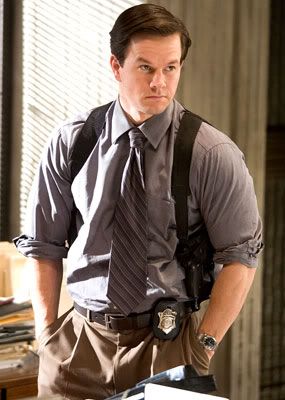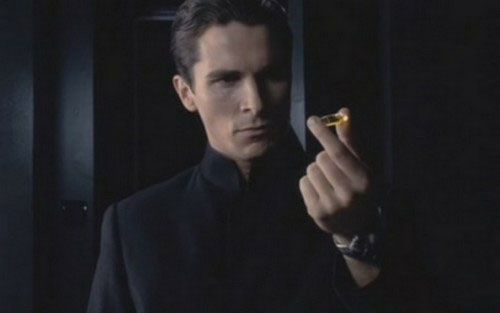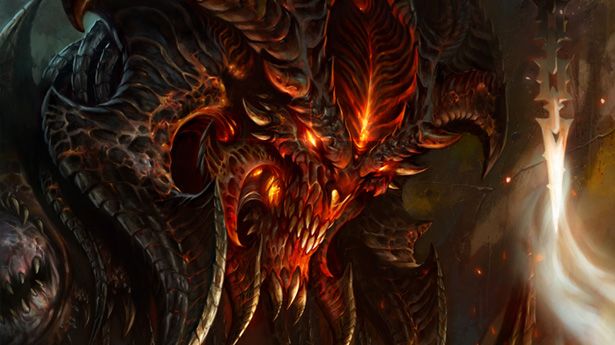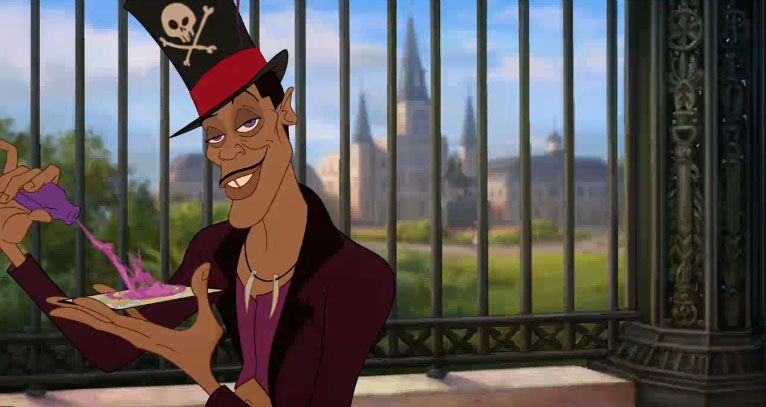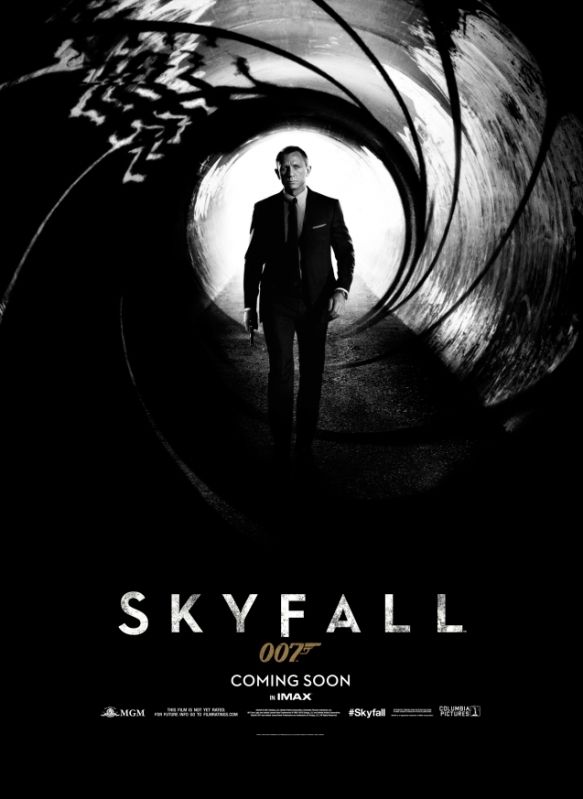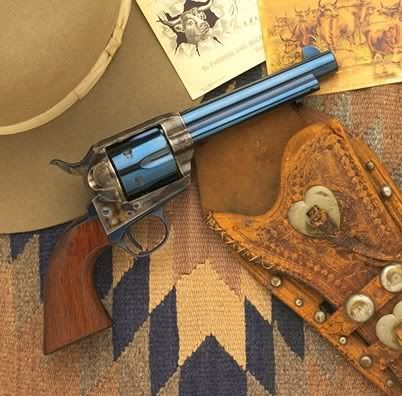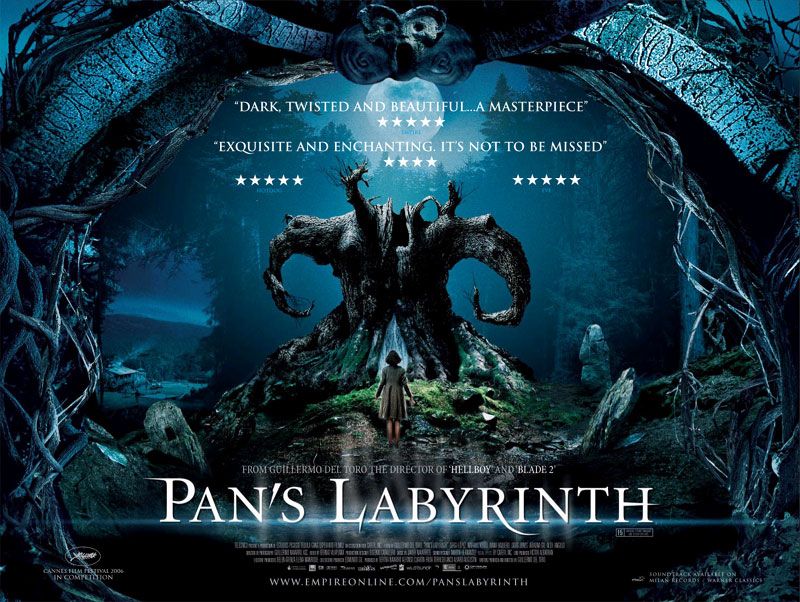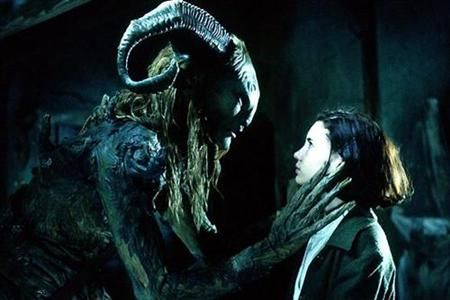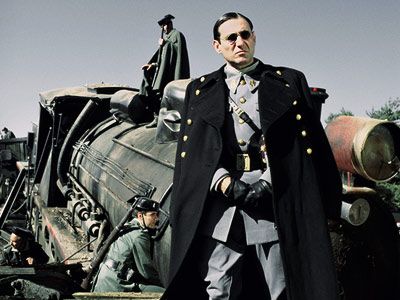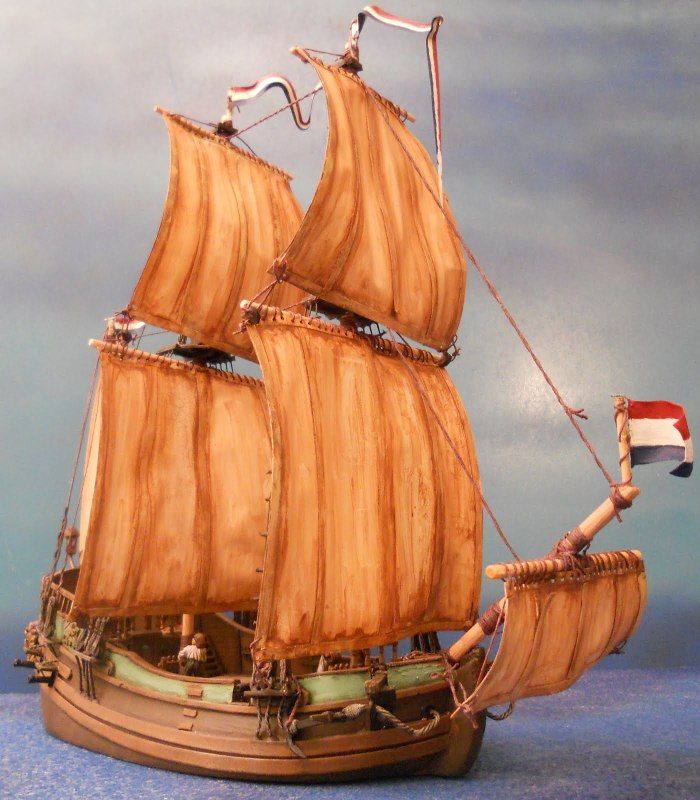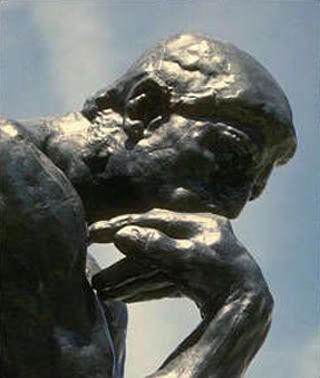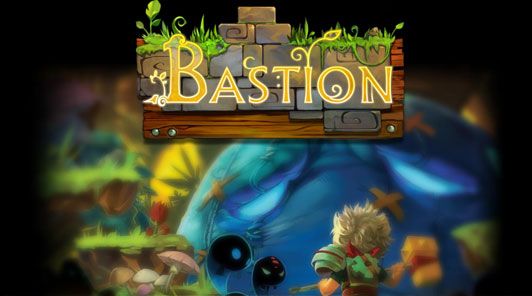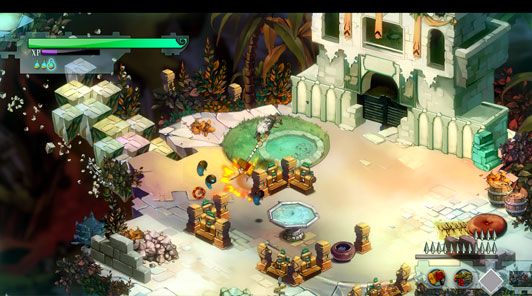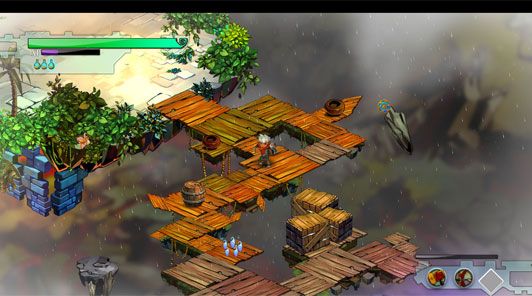It all comes down to this. Four years and five movies ago, if you'd told me that Marvel Studios would craft a connected universe between film franchises building to a coherent capstone piece, I would have laughed at the notion. But here we are.
The Avengers has arrived, and with it a lot of questions are answered. Is Marvel crazy enough to pull this off? Were they right to trust Joss Whedon and his litany of failed TV shoes? Can the disparate worlds of Iron Man's slick super-science, Thor's magical Norse-trapping high adventure, and Captain America's slightly campy but ultimately endearing throwback action merge without a seam or hitch? And will an untested actor filling the oversized purple pants of the Hulk topple the whole thing?
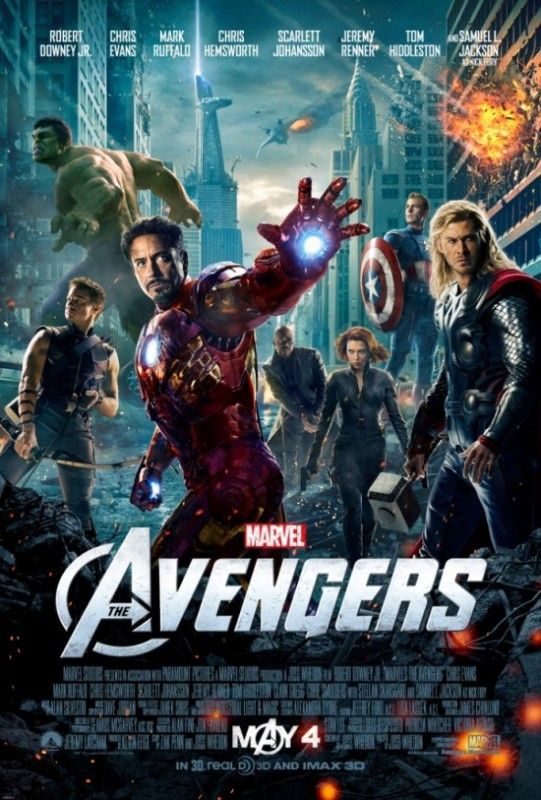
In case you're wondering: yes, yes, yes, and hell no. The story for this epic is relatively straightforward. The shady international organization SHIELD is in possession of a magical MacGuffin called the Tesseract, last seen used by super-science villains Hydra during World War 2. Loki, Asgardian demi-god of mischief, appears in the SHIELD lab and steals it so he can summon an intergalactic army and conquer the Earth. To stop him, SHIELD head honcho Nick Fury puts together a team of super-powered individuals consisting of Captain America, Iron Man, Thor, Black Widow, Hawkeye, and the Hulk. They alone have the power to save the planet... provided they don't beat the crap out of one another first. In comics, this sort of thing happens all the time. But in film? It's a lot more difficult to pull off. Marvel undertook the biggest gamble since the Lord of the Rings or perhaps Harry Potter, taking works that were previously considered somewhat niche and pushing them into the mainstream culture with a complete lack of shame or irony. As more films were released, less of the pretense of 'our world' was wrapped around them.
Iron Man you could almost buy as a plausible story,
Thor not so much. And with
The Avengers, not only do these disparate stories meet, but they're also expected to play off of and work well with one another? This shouldn't work.
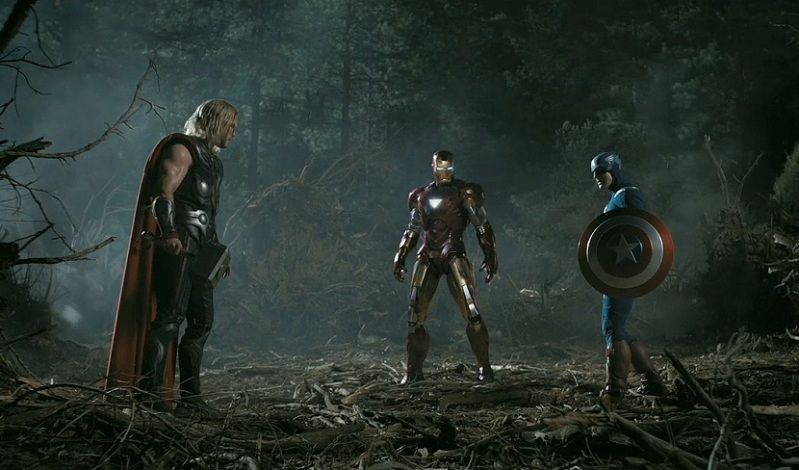
Tony: "Ladies, ladies. You're both pretty." And yet, it does. Not only does it work, it works extremely well. Writer-director Joss Whedon is one of the best alive when it comes to quirky settings and balanced character dynamics. His writing, while often panned for being too self-referential or pop-culture laden, fleshes out these characters for newcomers to the audience while playing off of previously established beats, as well as setting up alliances and conflicts for this film's running time. No character, be they hero or villain, is made to look dumb or shorted on time to shine. Except for the alien invaders, that is, but as CGI threats for our heroes to beat up, they do pretty well. Speaking of heroes, this movie absolutely would not work if the ensemble had no chemistry. Put any fears of that to bed. Not only is everybody in this production at the top of their game, it's clear that these folks are quite comfortable with one another, playing up the merits of their characters as well as their flaws with adeptness that allows their co-stars to play off of them with ease. The dialog and actions feel natural, tension is high, and humor is explosive. While Robert Downey Jr. is the old hand at this, and occasionally the scenes feel like "Tony Stark and some other losers, the movie", Chris Evans, Scarlett Johansson, and Chris Hemsworth continue to show what inspired choices they are for Cap, Black Widow, and Thor, respectively. I also don't think Thor's lines could be said by another character, which is another criticism often leveled against Whedon. Last but never least, Tom Hiddleston is allowed to stretch his wings as Loki even more here than he was in
Thor. Free of a great deal of his familial angst, he comes across as a great mix of mischief-maker, deceiver and
Flash Gordon villain, with a smirking confidence and swagger that are, in and of themselves, tough to beat.
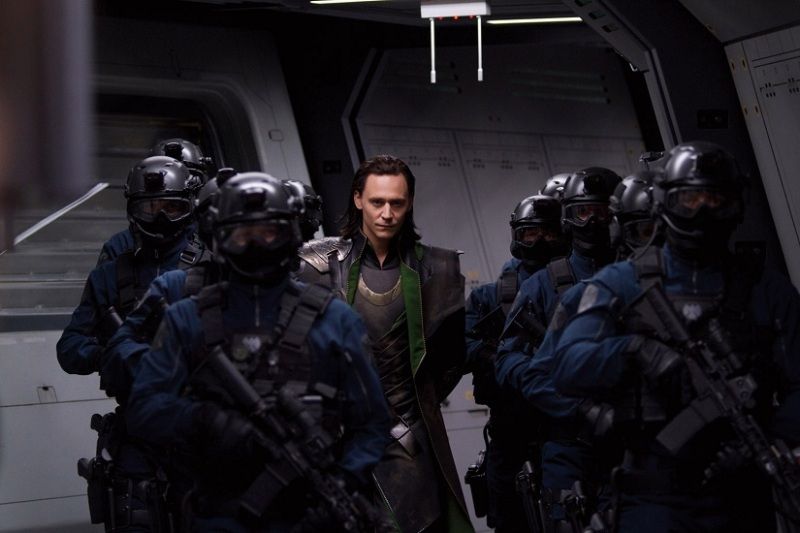
List of offenses: Mass murder, mass destruction, mind control, killer fashion sense, having too much swag. The Avengers does feature some new faces which could have diluted the project but instead underscore the strengths of the work. Jeremy Renner, previously established as Hawkeye in a one-scene cameo during
Thor, feels very much like both a sniper and a former renegade. Cobie Smulders, previously seen on
How I Met Your Mother, comes to us as SHIELD agent Maria Hill, working very well with SHIELD vets Samuel L. Jackson and Clark Gregg (Nick Fury and Agent Coulson, respectively) not only in humans observing the super-humans but also as forces of their own. And then we have Mark Ruffalo. Bruce Banner in the past has been tortured, haunted, hunted, and conflicted, but Ruffalo manages to be all of those things
and brilliant, quick-witted, funny, and confident. I certainly hope we'll be seeing more of him in this role. There are a few hiccups in the plot regarding the nature of the Hulk, and the discussions between Loki and the aliens can seem a bit obtuse at times, but any quibbles I can think of against the film are minor. The construction is tight, and while the film clocks in at around two and a half hours, it never drags and no scene feels unnecessary. It's a modern epic, a testament to the power of geek culture, and while on paper it seems like it should never work,
The Avengers not only delivers on the promise of the previous Marvel Studios films, it leaves the audience hungry for more.
Stuff I Liked: The SHIELD helicarrier. The governing council of SHIELD which was a nice callback to some of those comics. The scene in Germany before the heroes arrive. The callbacks to the previous films, woven elegantly into this new plot.
Stuff I Didn't Like: There's a moment in the film that I definitely didn't like, but I acknowledge its presence for various reasons. I will not speak more of it, as this is a spoiler-free review.
Stuff I Love: The duo of Tony Stark and Bruce Banner. The little touches that remind us just how much Steve Rogers is a man out of time. Thor and Loki maintaining their Asgardian airs at all times. The very well balanced final battle, from the 'assembly' of the Avengers to its climax.
Bottom Line: The Avengers is one of the best super-hero films ever made, with a great cast, top-notch production values, a very smart screenplay, and excellent direction. This is well worth your time and money to go see in cinemas.
Blue Ink Alchemy


